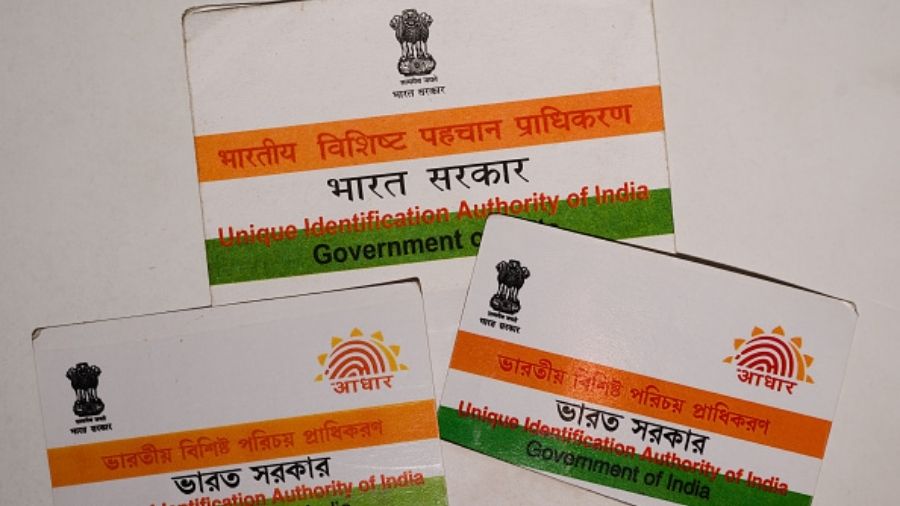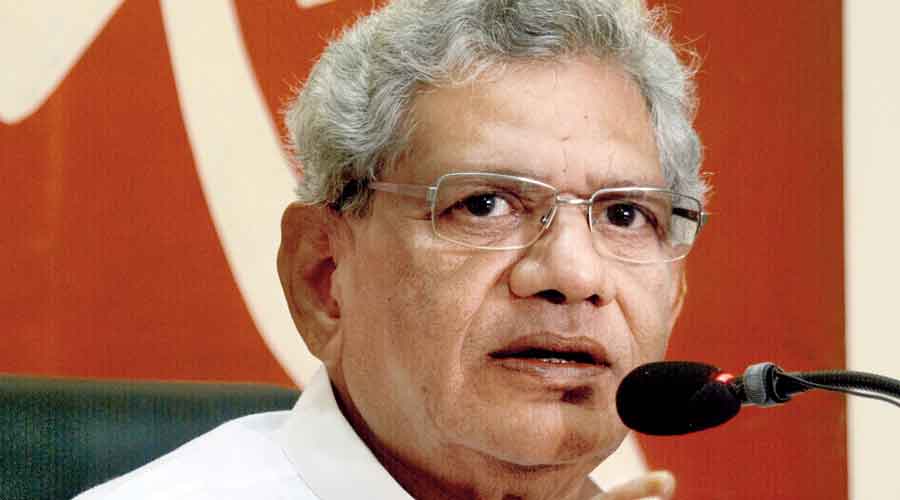A senior Election Commission of India official told The Telegraph on Monday that no citizen would be compelled to give their Aadhaar details to poll officials even if they have an Aadhaar number.
The official also clarified that election authorities would rely only on Aadhaar data received directly from voters or those who register to vote, and not rely on any third-party database, not even those of state governments.
This, the official suggested, would prevent any repeat of the fiasco in Telangana and Andhra Pradesh where at least 30 lakh names linked to Aadhaar were auto-deleted from the voters list after 2015.
On August 1, the Election Commission had begun a drive to encourage voters to voluntarily give their Aadhaar details for linking to the voters list, with the aim of weeding out duplicate entries of a voter.
The move has attracted opposition from some, such as CPM general secretary Sitaram Yechury who has asked the commission to suspend the drive until it investigates deletions and breaches in the past, and takes steps to prevent them in future.
The Telangana-Andhra fiasco happened when the government started a National Electoral Roll Purification and Authentication Programme in 2015, which was stalled by the Supreme Court in the same year.
With the passage of the Election Laws (Amendment) Act last year, election authorities are now allowed to ask voters to give their Aadhaar numbers.
However, Sub-section 23(6) of the amended Representation of the People Act, 1950, decrees that no legitimate voter can be excluded from registering if she can provide “sufficient cause” for her inability to provide her Aadhaar and can provide alternative documents.
The clarification the poll panel official gave to this newspaper is expected to appear in the Election Commission’s reply to Yechury.
While seeking suspension of the drive, Yechury had referred to the 2015 exercise and demanded that the data collected before last year’s amendment be deleted.
Yechury had said: “As part of this exercise, several chief electoral officers across the country have obtained the Aadhaar data of voters from several other databases like NPR, PDS and State Resident Data Hubs (SRDH). These electoral offices linked Aadhaar with voter IDs of 31 crore voters without informing the individual voters and instead using algorithms to automatically link them based on already existing data.”
But the official said: “We do not keep any Aadhaar data, including anything collected in the past, such as the data received in Telangana…. We will only rely on data voluntarily obtained from voters.”
Citing the instructions sent to the state chief electoral officers (CEOs) on July 4, the commission official reaffirmed: “Aadhaar numbers will not be put in the public domain. Before storing Aadhaar data, the numbers will be masked by the Union government’s Centre for Development of Advanced Computing. Only specific officers will have access to the data for specific jurisdictions.
“The Aadhaar data will not be stored in our ERONET software but in a licensed Aadhaar vault. Any deletion (from the voter list) will only happen after doorstep verification.”
ERONET is under the Election Commission. A licensed Aadhaar vault is a digital storage facility that complies with protocols of the UIDAI. Government agencies use the Aadhaar vault run by the National Informatics Centre, which is a central government organisation. This is safer than storing it in an app like ERONET.
The instructions to the CEOs say that if a voter doesn’t have an Aadhaar, she may be asked to submit any of the 11 alternative documents.
The poll panel official said: “We will issue a clarification. A citizen can say ‘no’ even if he has an Aadhaar. This will be purely voluntary…. The voter list is the most comprehensive verified data of citizens in India. Aadhaar merely adds to the quality of the list as it has biometric data that is better than the photo ID of voters, which is often unclear.”
The official added: “Until yesterday, some 1.52 crore voters — that is 1.6 per cent of the electorate — have given their Aadhaar data. Of these, data of around 1.3 crore voters was collected by booth-level officers who recorded it in the Garuda app made for them.
“The states that have received a response (to the drive) higher than the national average are Madhya Pradesh, Rajasthan, Uttar Pradesh, Assam, Manipur and Tripura.”











